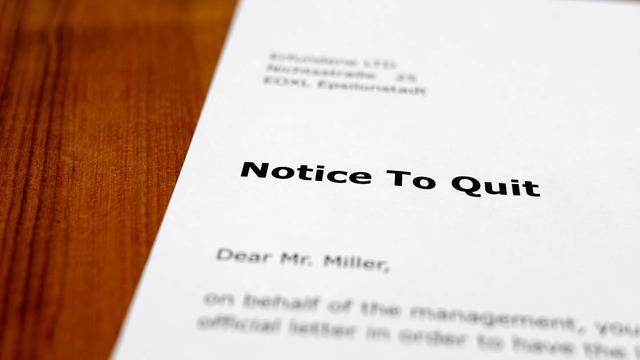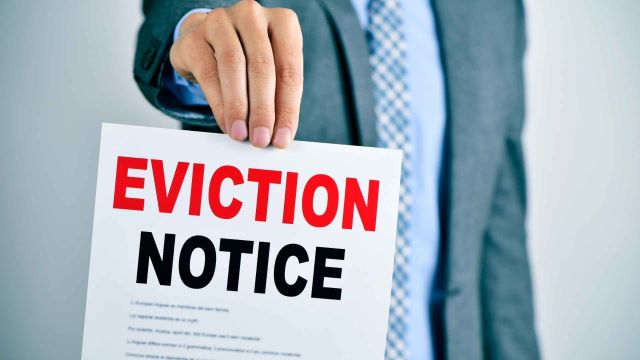Key Takeaways
Legal Grounds are a Must: Before starting an eviction, ensure you have a legitimate reason, like unpaid rent or violations of the rental agreement.
Proper Notice is Crucial: Serving the correct eviction notice is essential. For instance, a three day notice is typically given for non-payment of rent.
Follow Legal Procedures: Adhering to Florida's legal eviction process is vital. Avoid self-help evictions, such as changing locks or removing tenant belongings, as these actions are illegal.
Documentation is Key: Keep thorough records of all tenant communications and any violations. This documentation can be crucial if the eviction is contested in court.
Remember, evictions can be complex and should be considered a last resort. It's often beneficial to consult with a rental management professional or legal expert to navigate the process smoothly.
Are you a landlord considering evicting a tenant from your Florida rental property? Or, are you simply trying to familiarize yourself with the Florida eviction process? Whatever your use for this information is, this guide has you covered!
To successfully evict a tenant from their rented premises, landlords must carefully follow the law. Anything contrary is bound to fail. Including, trying to eject the tenant without a ‘just reason’, making errors during the process, and trying to carry out a self-help eviction. Evictions that are retaliatory or based on federally protected FHA classes will also fail.
As a savvy landlord, you should always carry out an eviction process as a last resort. That’s because it can be a time-consuming, stressful, and costly exercise to undertake from start to finish.
With that in mind, the following is a guide put together by SunnySide Properties with everything to know about the eviction process in Florida.
Need Help with Tenants? Contact Us Today!
What Is the Eviction Process in Florida? Here Is a Guide
Generally speaking, expect the tenant eviction process in Florida to take up to 3 weeks. It can also take longer depending on the just cause for the eviction and whether or not the tenant fights it in court.
To make sure the process takes as little time as possible, make sure the landlord does the following.

Have a legitimate reason for the eviction lawsuit. There are specific reasons for tenant eviction. Trying to evict the tenant without a legal reason is bound to fail. In Florida, landlords can only evict a tenant for not paying rent, staying after the lease or rental agreement has expired, lease violation, or engaging in criminal activity.
Make sure the landlord has documented everything. For example, if evicting the tenant due to property damage, make sure the landlord has documented evidence of the damage to present in court if necessary.
Familiarize yourself with the state’s eviction laws. Alternatively, hire a property management expert to help carry out the eviction lawsuit process on the landlords behalf.
Serve the appropriate notice promptly and properly. The contents of an notice as well as the manner of service must be by the law.
Prepare for the court hearing by having all the necessary documentation and evidence. Await the court ruling to know what step to take next.
Now that landlords have a general overview of the process, let’s now walk through each step in detail.
Notice for Lease Termination with Legal Cause
Once the landlord has a just cause for eviction, they can move to the next step and serve the tenant with a notice. This is the very first step to take in a tenant eviction process. The notice tells the tenant the violation they have committed and whether or not they can fix it. It also requires the tenant to act within a specific period.
In Florida, landlords can choose from among four notices depending on the violation the tenant has committed. They are as follows.

Three Day Notice to Pay the Rental Balance Due or Move Out
This three day notice will give the tenant up to three days to either pay the rent due or move out. Usually, rent becomes due on the first day of the month, and becomes late immediately after this date. If the landlord provides tenants with a grace period (not mandatory under Florida law), ensure to honor it.
If the tenant pays the rent due within the three days, the landlord won’t need to take any further action. But if the tenant fails to make the payment or move out within this period, the landlord can continue the process.
Thirty Day Notice to Vacate for Tenants With No Rental Agreement or Those on a Month-To-Month Lease
To end the rental agreement of such tenants, the landlord must serve them with a thirty days’ notice to move out. If the tenant doesn’t, the landlord can move forward with the process and file a lawsuit against them. Note that the timeline for the notice will depend on how often the tenant pays rent.
Seven Day Notice to Comply or Vacate for Committing Minor Lease Violations
Under Florida law, landlords can also evict tenants who commit minor lease agreement violations. Examples of these include failure to keep the unit clean and sanitary, causing minor damage, and subletting the premises illegally.

To evict the tenant, a seven day notice is required under state law. The tenant can choose to fix the violation or move out within this period. If they don’t do either, the landlord can move on with the eviction lawsuit process.
Seven Day Notice to Vacate for Causing Substantial Property Damage
For tenants who cause substantial damage or multiple lease violations within a twelve month period, you’ll first need to serve them a seven day advance notice. Unlike the immediate previous notice, the tenant doesn’t have the option to cure the violation. The landlord can head directly to court if the tenant doesn’t move out after receiving the seven day notive.
Explore Our Property Management Services
Serving a Tenant with an Eviction Notice in Florida
The following are the options landlords have when it comes to delivering a notice to a tenant.
Delivering it to the tenant in person.
If hand-delivery fails, landlords can leave a copy of the notice in a conspicuous area on the premises.
Delivering the mail to the tenant by mail.

Tenant Eviction Defenses in Florida
In Florida, tenants have a right to file an answer to an eviction complaint. This will grant the tenant an opportunity to file a defense against their eviction. The following are some examples of legal defenses a tenant can use against their eviction.
The landlord locked them out, removed their belongings from the unit, shut down crucial services, or other illegal “self-help” eviction tactics.
The tenant didn’t violate the lease as the landlord alleges.
The tenant cured the violation within the notice period.
The eviction is due to a federally-protected Fair Housing Act class.
The eviction is a retaliatory act by the landlord.
Attending Court Hearing
If the court rules in the landlord’s favor, a Writ of Possession will be issued. A writ of possession serves as the tenant’s final notice to vacate their rented premises; otherwise, a sheriff will forcefully remove them.
Once the writ of possession is delivered to the sheriff’s office, the process of scheduling the removal begins. Depending on the availability of the sheriff’s office, it could take a few hours or slightly longer to carry out the writ of possession and return possession of the rental to the landlord.
Let Us Handle Your Property Management Needs!
Conclusion
Evicting a tenant requires strict adherence to the law by a landlord. Rushing through the process or engaging in illegal removal processes is bound to fail. For expert help in any aspect of landlording, SunnySide Properties can help. We offer a comprehensive suite of solutions designed to make your life easier.
Contact us today to learn more about our services!
Disclaimer: Please note that the information provided in this blog is intended for general guidance and should not be considered as a replacement for professional legal advice. It is important to be aware that laws pertaining to property management may change, rendering this information outdated by the time you read it.


.png)